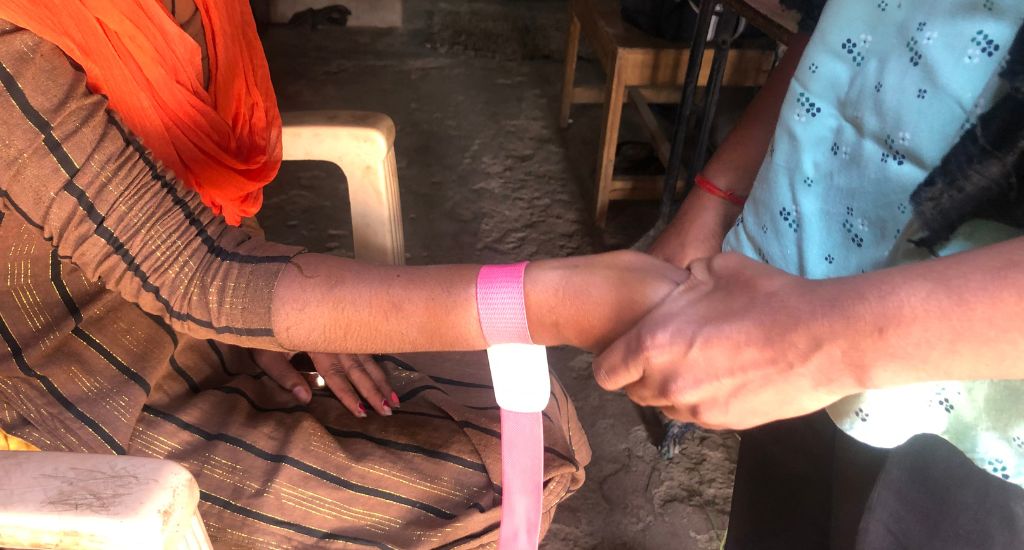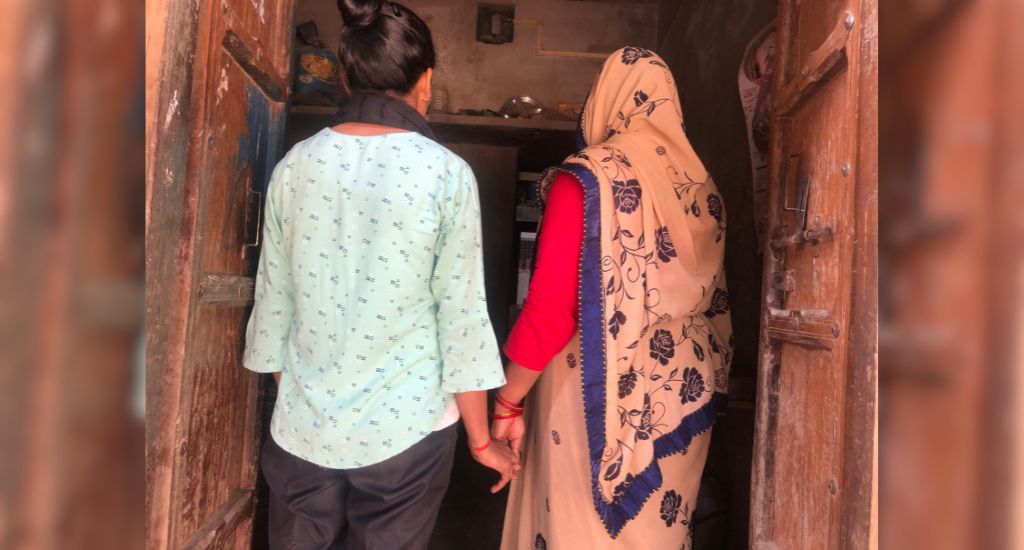
Where school dropouts get to work in hospitals
Young women who had dropped out of school due to difficult circumstances get trained to work as nursing assistants, while also learning to develop a professional attitude at work.

Young women who had dropped out of school due to difficult circumstances get trained to work as nursing assistants, while also learning to develop a professional attitude at work.
Suneeta Yadav from Aswa Mohammadpur village in Bahraich district of Uttar Pradesh always had big dreams. She had always wanted to become a doctor, but her family’s financial conditions didn’t allow it.
Her parents, with a humble farming background, did everything in their capacity to ensure that she got a good education.
Desperate to earn a livelihood and support her family financially, Yadav got into multi-level marketing, which turned out to be a regrettable decision. She suffered a huge financial loss, and had to drop out of her course at an industrial training institute (ITI) and return to her village.

“It was a huge mistake. I lost several thousand rupees. And also lost trust in myself. I blamed myself for my decisions. My parents were also affected. After that, I lost the will to do anything. I just didn’t have enough courage to ask my parents for more money for my career,” said Yadav.
But life had other plans for her. Her unfulfilled dreams were about to get accomplished when she enrolled in a healthcare training programme.
A community resource person from Aga Khan Foundation (AKF) reached out to Yadav about the general duty assistant training programme they offered.
Also Read: Child cabinets bring students at work back to school
“My mother was my biggest support. Despite my earlier failure, she trusted me,” said Yadav. “In fact, she was the one who submitted all the necessary documents to the foundation.”
Offered by Tech Mahindra SMART Academy, the programme trains qualified school dropouts to work as certified nursing assistants in hospitals and as home care service providers.

The minimum educational qualification for selection was that the students should have passed class VIII. The majority of girls were school dropouts. AKF selected 25 young women for this programme. The cost of training per student was Rs 3,500. While AKF paid Rs 3,000, the students paid Rs 500 to the academy.
“The idea behind making students pay some part of the fee was to ensure that they had some sense of ownership. People don’t value something that is offered for free,” said Raghavendra Pratap Singh, Director – Operations, AKF.
He also mentioned that the foundation took care of 80 percent of the total transport cost and any rental expenses that the students had to bear. All the 25 students from Yadav’s batch cleared the exam and are now ready to be placed.
The three-month-long training programme equipped 20-year-old Yadav with essential healthcare skills such as giving cardiopulmonary resuscitation (CPR), injections, general checkups and first aid, among other things.
She was one of the toppers of her batch.
Also Read: Right to Health: A Holistic and Empathetic Approach

“After making wrong decisions in the past, I wanted to make full use of this opportunity. I attended all my classes and topped the class,” she said with excitement.
Yadav was working in a small clinic in her village when she joined the training programme. This training added much-needed knowledge and practical experience to her work.
“Earlier whenever any emergency patient or a pregnant lady came, I would panic. I wouldn’t know how to handle it,” she said. “But after the training, I feel much more confident. I know the right steps to follow.”
She has not only gained technical knowledge but also other essential soft skills like communication and time management.
“I understand the value of time better; especially in this critical field when every second counts. Now I make sure that I am punctual and professional,” said Yadav. “I have also learnt how to handle patients who are in distress. These things will help me throughout my life.”
Lavi, the community resource person from the village mentioned how the biggest challenge was to convince family members to send their daughters to attend the course. Many families didn’t want their girls to go out alone. The villagers also bad-mouthed them, which further prevented families from actively coming forward even if they wanted to be part of it.
Also Read: Medical access remains a challenge in rural India

“But when they saw the girls doing well after the training, they came around. I get so many calls now from young girls and their families to get them enrolled in this course,” said Lavi.
The placement process for all the students is currently ongoing. AKF has created a phone-based network where students upload their CVs and get important feedback.
Many renowned hospitals like Vedanta have already come on board to hire these young women.
“We have spoken to several hospitals. And we are sure that our batch will see 100 percent placement,” Singh mentioned. The students will get a salary of about Rs 13,000 per month once they join.
Also Read: Musahars denied healthcare because they are considered untouchables
The lead image shows Suneeta Yadav attending to a patient at the small clinic in her village where she works
Shreya Pareek, a Uttarakhand-based solution journalist, is a Village Square Fellow ’23.